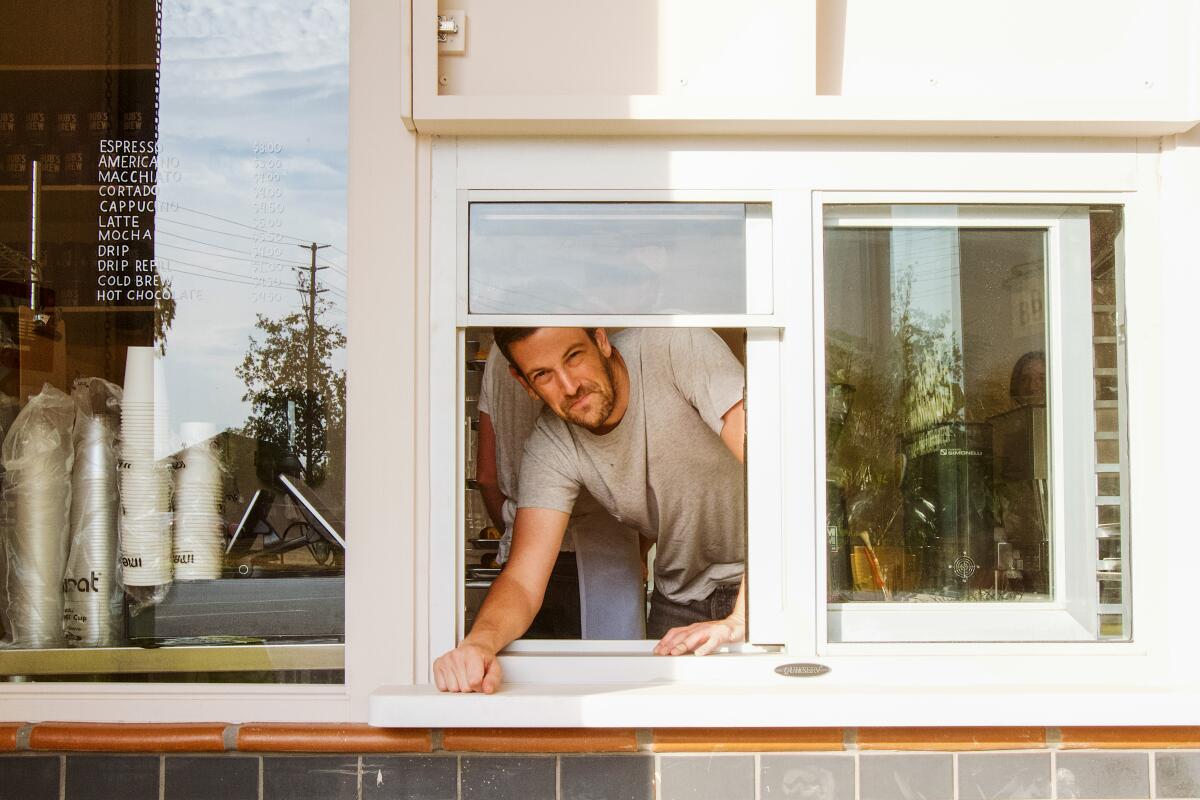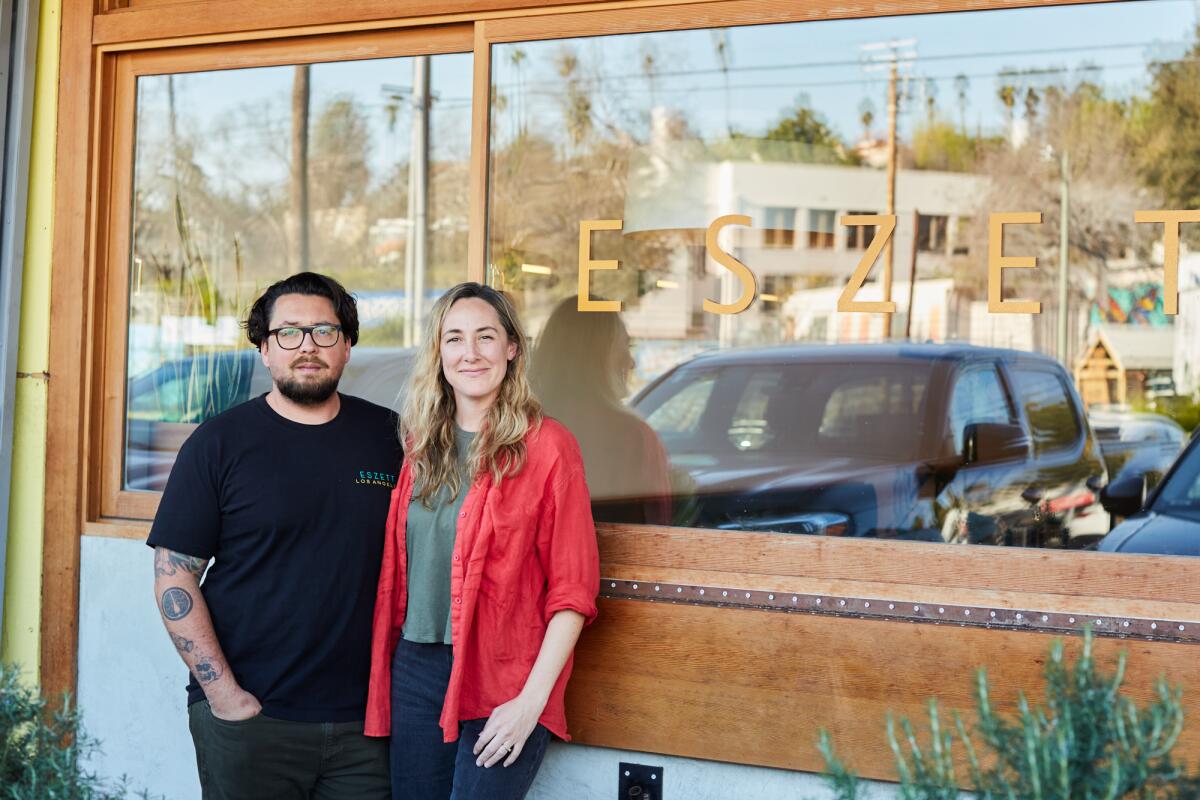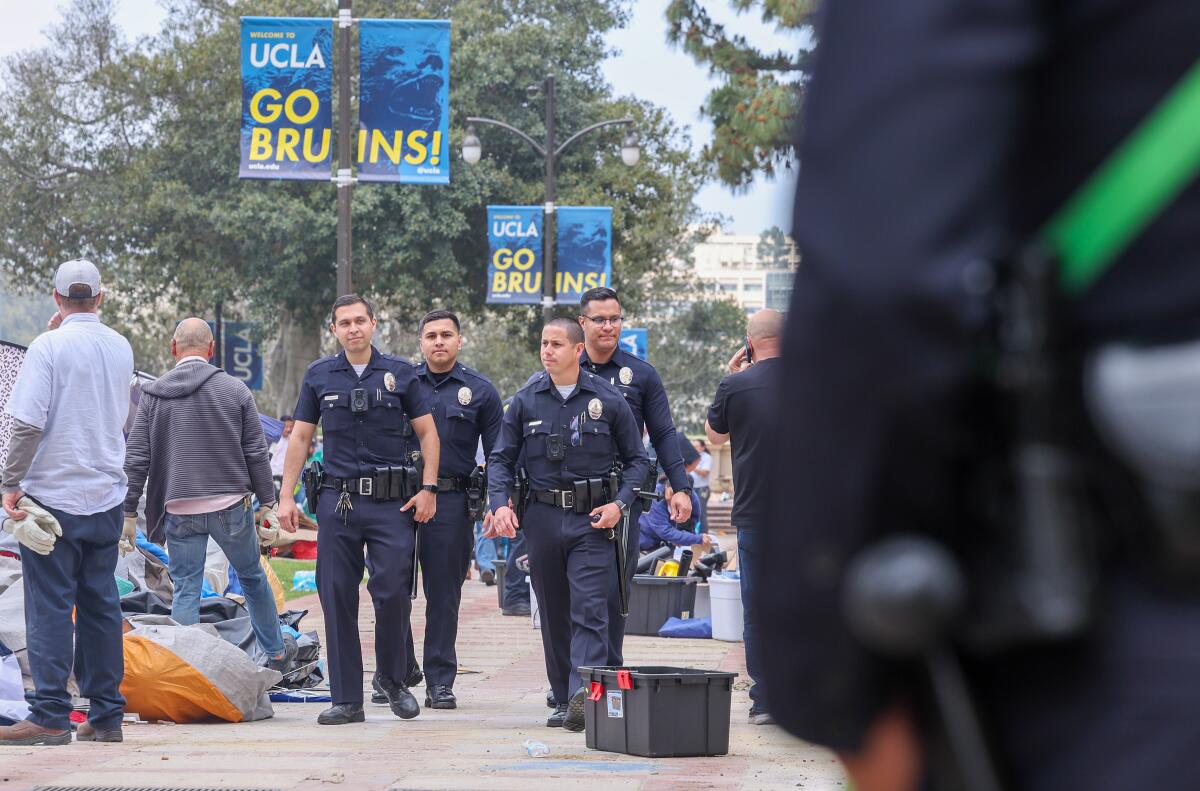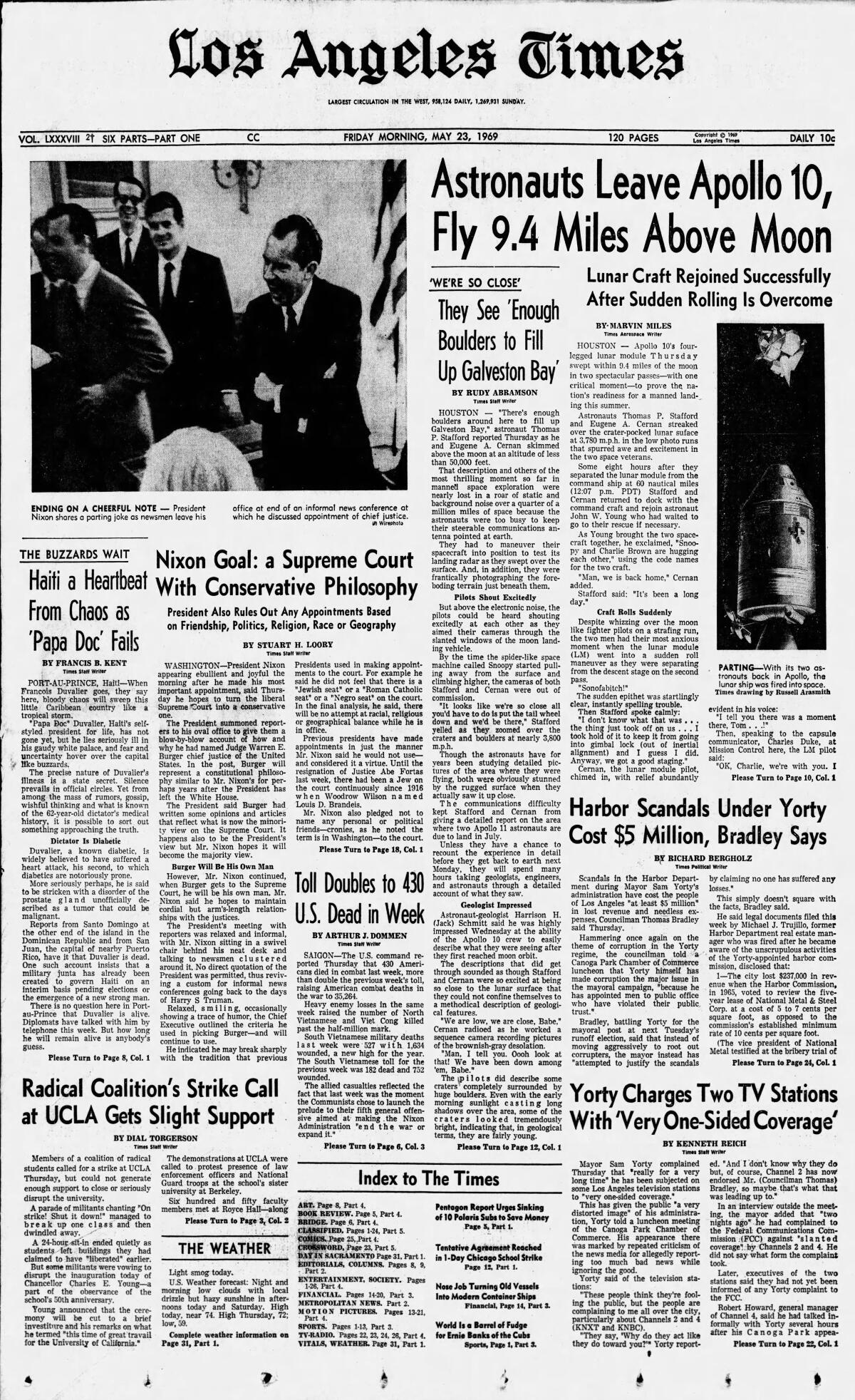Good morning. It’s Thursday, May 23. Here’s what you need to know to start your day.
The year that altered L.A.’s restaurant scene
Los Angeles’ restaurant scene changed dramatically in 2023. Restaurateurs managed inflation of ingredient prices, staff shortages, maintenance costs and pandemic-era loan repayment deadlines, all while those relying on catering, industry meetings and private events were hit by the massive strikes in the entertainment industry.
By the end of 2023, at least 65 notable L.A. restaurants had shut down.
2024 is already proving to be another difficult year for the restaurant industry: New state and local laws are transforming how restaurants charge customers and pay their staff.
The minimum wage for all employees in California increased in January to $16 per hour. A separate law raised the minimum wage for fast-food workers to $20.
On July 1, California will outlaw hidden fees or surcharges, which restaurants often use to fund employee benefits and help compensate back-of-house employees. Restaurants will need to factor those costs into menu prices, which could surprise customers as we wrote about in this newsletter back in February.
And costs continue to rise. Over the last four years, food prices have increased by about 25%, according to the U.S. Bureau of Labor Statistics’ Consumer Price Index.
How has the industry changed? How are restaurateurs coping? What do former owners have to say about life after restaurants? The Times’ food team explored these questions in their new package, What will save L.A. restaurants? Here is what some restaurateurs had to say.
Closing is sometimes as costly as staying open
For the Chinatown sandwich shop, Wax Paper, to make sense, owner Lauren Lemos (who owns the restaurant with her husband Peter) estimated they would need to make between $4,000 and $8,000 in sales daily. But before the pandemic they would barely break $2,000 in sales, and last year, some days, breaking $1,000 in sales became a challenge.
So they shut down in October. But the bills kept piling up. In March, they reopened. Here’s how Lauren explained it to my colleague Stephanie Breijo:
“We still have our lease, we still have our [federal] loans from the SBA, from COVID, the bills are still coming in. We can’t even afford to close. We can’t afford to be open, we can’t afford to be closed.”
Innovating might require doing more with less
Andy Kadin’s bakery, Bub and Grandma’s distributes bread loaves to many of the city’s favorite restaurants, cafes and markets every day. But rising gas prices and surging drivers’ insurance rates for his five delivery vans have forced him to increase delivery fees and consider partnering with delivery companies.
And if the war in Ukraine continues to affect the cost of flour in the U.S., Kadin said he will have to raise his operation’s prices.
Here’s how he put it to Stephanie:
“There are thresholds that once they go over that, people aren’t going to pay $12, $15 for a single loaf of bread. I hope we don’t get there. If we do, we’re going to have to get very creative and have to do more with less.”

Andy Kadin at Bub and Grandma’s. (Stephanie Breijo / Los Angeles Times)
The industry continues to draw restaurateurs back — just not in L.A.
Spencer and Sabrina Bezaire closed down their Silver Lake restaurant Eszett in January 2023. They had opened in December 2019, right before COVID-19. Their vision for the restaurant was altered by the pandemic, so they pivoted to easy takeout items like sandwiches.
COVID mandates eased, wages increased and their landlord told them they couldn’t use a part of the parking lot for outdoor dining anymore. So, they closed down, packed up and moved to Orcas Island in Washington state.

Spencer and Sabrina Bezaire pose for photographs outside of their restaurant, Eszette, which they closed in 2023. They now live in Washington state. (Brittany Brooks / For The Times)
Now, they are opening a new restaurant there. Their latest culinary venture will be a small lunch deli with pantry items called Lone Pine Larder. Spencer said that when the opportunity came, he couldn’t pass on it.
This time, they’re only hiring a few employees and limiting hours to lunch four days a week, so they can relish the outdoors.
“I don’t know if it’s fate or just really dumb,” Spencer told Stephanie.
Read more:
Today’s top stories

LAPD officers patrol the UCLA campus in the aftermath of the pro-Palestinian encampment being dismantled. (Brian van der Brug / Los Angeles Times)
Campus unrest
Climate and environment
Crime
Arizona and abortion
Memorial Day
More big stories
Get unlimited access to the Los Angeles Times. Subscribe here.
Today’s great reads

(Brian van der Brug/Los Angeles Times)
Why some of California’s most outdoorsy people are moving to ... Las Vegas? It’s one of the indoors-iest places on the planet. But just outside the city, about 20 minutes from the bachelor parties and slot machines, a growing number of elite outdoor athletes are buying homes, starting families and declaring Las Vegas the adventure sports capital of the United States.
Other great reads
How can we make this newsletter more useful? Send comments to essentialcalifornia@latimes.com.
For your downtime

(Los Angeles Times photo collage; photos by Adam Tschorn / Los Angeles Times, Calvin Alagot / Los Angeles Times, Christopher Reynolds / Los Angeles Times, Jay L. Clendenin / Los Angeles Times, Kent Nishimura / Los Angeles Times, Myung J. Chun / Los Angeles Times, Ricardo DeAratanha / Los Angeles Times, Wally Skalij / Los Angeles Times)
Going out
Staying in
And finally ... from our archives

(Los Angeles Times)
On this day 55 years ago, the Apollo 11 crew rehearsed nearly every aspect of the moon landing — which happened two months later — with the exception of the landing itself, flying to within 9.4 miles of the lunar surface.
Have a great day, from the Essential California team
Defne Karabatur, fellow
Kevinisha Walker, multiplatform editor and Saturday reporter
Christian Orozco, assistant editor
Karim Doumar, head of newsletters
No comments:
Post a Comment